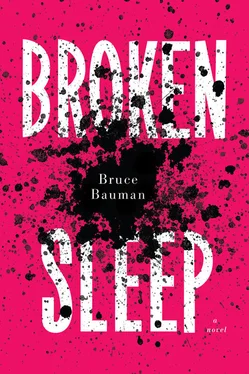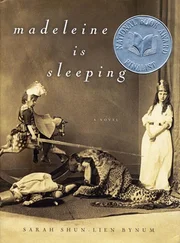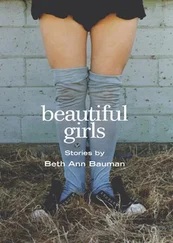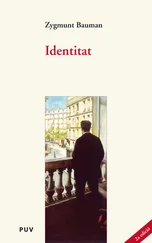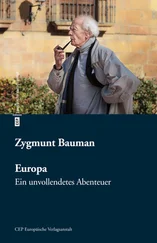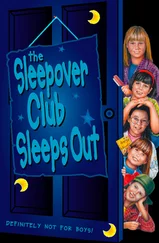I used to urge everyone, especially my shrinks, to get in touch with their inner sexual music. To get laid by loins that sing. All of my shrinks — men and women — needed to unbutton their crotches and screw more. Even my latest “caretaker” here, Dr. Zooey Bellows, with her soulsmell of fresh pineapple and steamy ice right out of the freezer that lingers for hours after she has gone, reeks of repression.
Xtine was the first woman to make my sex sing. Yes, we were lovers. Her photos of me were the ones that ended up in Life . Unlike any male photographer I’ve ever known, she could bring out my sexuality and vulnerability without it seeming porny or kittenish. Maybe it was the delicate manner of her touch.
I broke up with Horrwich and I began enjoying life. Sport-fucking was fun. The only sport at which I excelled. Art was fun. Serious was fun. I put up one of my favorite shows at Gibbon’s new gallery on West Broadway in ’69. There were only a few galleries then. Paula Cooper, OK Harris, Cunningham Ward, Hundred Acres. I collected Do Not Disturb signs from dozens of hotels in dozens of languages, and I made paintings, collages, photos, all centered around Vietnam, Biafra, and the riots in Selma, Nixon and an American public complacently snoozing away.
I followed that up the next year with This Is Not a Pipedream . You know, playing off Magritte. I slept in the gallery and people watched me. Behind a curtain I did some pipedream-like acts. Xtine filmed it. Andy had made a film called Sleep . His twin obsessions were ennui and celebrity. Me, I wanted to explore what happens in the worlds outside you and inside you when you’re asleep, that in-between dimension of insomnia and slumberland when you think you are awake but you’re asleep, and when you wish you were asleep but are awake. I wanted to record the act of sleeping in the gallery and how people reacted.
We filmed for the entire month. I wouldn’t sell it. Same with the sketches I’d made from my dreams and of the people in the gallery. I told Gibbon that I’d hold on to the original video and all but a few of my sketches. I gave him some so he could pay his alimony and maintain his potbellied plumpery. I gave a few to Xtine and some other friends. I burned or hid the rest with the original films.
Then the good times came to a stop. Dad’s emphysema got serious. He’d never quit smoking. I spent a lot of time at home. I needed to be there for him. Hilda wanted my help, although she didn’t understand me. She believed that I’d grown into some kind of whore, though she kind of absolved me because I was the spawn of a fallen woman. She wanted to love me unconditionally. She couldn’t. Her eyes always scolded me.
Dad died fast and slow. Each day he withered just a little more until he looked like a shrunken bag of water and bones with two bulging eyes as his internal organs began to fail. He died of a squashed spirit as much as from the disease. We talked a little then. It was cleansing. In his luggy way, he told me how much he loved me.
“Salo, it made me so happy to watch you drawing up on the roof or just staring at birds and the sky. Or watching you ride off on your bicycle as free and determined as an osprey.” At night, alone, I cried and cried, seeing this once powerful man reduced to where the simple act of breathing became unendurable. We buried him next to the baby.
I had to fend off Dad’s Gravity Disease from seeping into me. Gravity, as everyone knows, affects water and the tides and our balance. Besides aging cells, there is emotional aging. An unseen force, an invisible weight that arises in the direst of moments and is the destroyer of so many strong spirits — my dad, and then Nathaniel, and even my Alchemy.
Alchemy. I was successful, in one wonderful way. Despite having me for a mother, or maybe because he had me for his mother, he was blessedly impervious in his young life to any major symptoms of Gravity Disease. He bled with the fluid of despair when Absurda, who suffered with a lifelong vicious case, died. But the intrusions of the Pretender and Laluna, Alchemy’s traitoress entrancer, and all those stupid political demands, that’s what did it. He couldn’t run away like me. I survived because I flew off, went astray. He couldn’t allow himself to do that.
Emotions have weight and force and mass. They are made of quantum-size, blood-dappled molecules existing in multidimensions. There are those who feel this weight more than others, and it shows on their faces. Some balance it out. Others get dragged down and become bitter and small people. Some become more generous in spirit. Some even go slowly mad. Gravity Disease is the death of cells exhausted by sadness and disappointment over a lifetime. The doctors have discovered genetic causes for so many diseases. No matter what they find they’ll be stymied — they’ll never cure them all, and new ones will arise. The raw pain of life is the true cause of Gravity Disease, and there is no cure for that except bodydeath. Those who suffer from chronic disease of the mind or the body or the heart carry tremendous emotional gravity. My disease began to weigh when my first son was stillborn and I blamed myself for his death. The heavier your gravity, the greater your wound. If the gravity becomes too great, your life force is crushed too soon.
It happened to Nathaniel. I miss him so.
When we met for the second time, in 1970, I was pregnant with Alchemy. I’d been hibernating in Orient. After what happened with the first baby, I’d suspended all drugs, drinking, screwing. I didn’t want anyone’s dick inside me, getting in the way of me bonding with my child.
Hilda was lighthearted for the first time since Dad got sick. For her, life was returning to the house. Xtine came out off and on, and Hilda was mostly cool with that, except when we played “Guess who’s the father?” although I had a good idea who it was. We read aloud from our favorite books. I played music for Alchemy, everything from Lizst to Stockhausen, Holiday to Hendrix.
I visited Xtine in the city for a few days to nourish the unborn Alchemy with art. I was drifting through the old, old Modern when I got a little tired. I headed to a room where I could relax on a bench and began dreaming in the Water Lilies .
“Sniffing Monet?” I looked to my left, and there stood Nathaniel. He hadn’t changed at all. I mean literally. It looked like he hadn’t changed his clothes in four years. Still slightly motley, with short hair, a reddish-brown goatee, and gold-rimmed glasses. Scraggly jeans, beat-up khaki jacket, and a satchel slung over his shoulder. Just no camouflage cap.
“Inhaling the colors and letting him or her feel art.” My eyes veered toward my mildly expanded belly and his gaze followed.
“Just as Urso predicted.”
It took me a minute to remember Urso’s insult about the “soupçon du jour,” suburbia, and babies. Instead of teasing him about his need for a wardrobe consultant, I stuck out my tongue and tasted the air around Nathaniel. “Alchemy — that will be my child’s name, boy or girl. Next to me is a man who has one of the purest soulsmells, but he just spit out a comment that is unworthy of him because it is not genuine. In typical male fashion, he does not understand that raising a child is an art at which most people fail.”
He laughed and put up his hands. “Okay, I stand reprimanded. I saw you in the Matisse Swimming Pool and you were humming ‘row, row your boat, gently down the stream …’ not noticing a soul.”
“Communing with my child. Levitating out of my body, exactly the way Matisse wanted us to do. It felt glorious. So, how are you?” I’d kept tabs on his career the best I could. I’d seen him on TV when that porcine-faced Mayor Daley had his cops arrest him at the ’68 Democratic convention in Chicago. I’d also read a few newspaper and magazine articles by or about him.
Читать дальше
